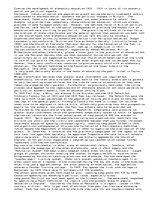-
Examine the Development of Elementary Education 1833 - 1914 in Terms of Its Economic, Social and Political Aspects
Level:
Secondary school
Literature:
n/a
References:
Not used
Send to email
Your name:
Enter an email address where the link will be sent:
Hi!
{Your name} suggests you to check out this eKönyvtár paper on „Examine the Development of Elementary Education 1833 - 1914 in Terms of Its Economic, Social and Political Aspects”.
Link to paper:
https://eng.ekonyvtar.eu/w/855016
Link to paper:
https://eng.ekonyvtar.eu/w/855016
Email has been sent



